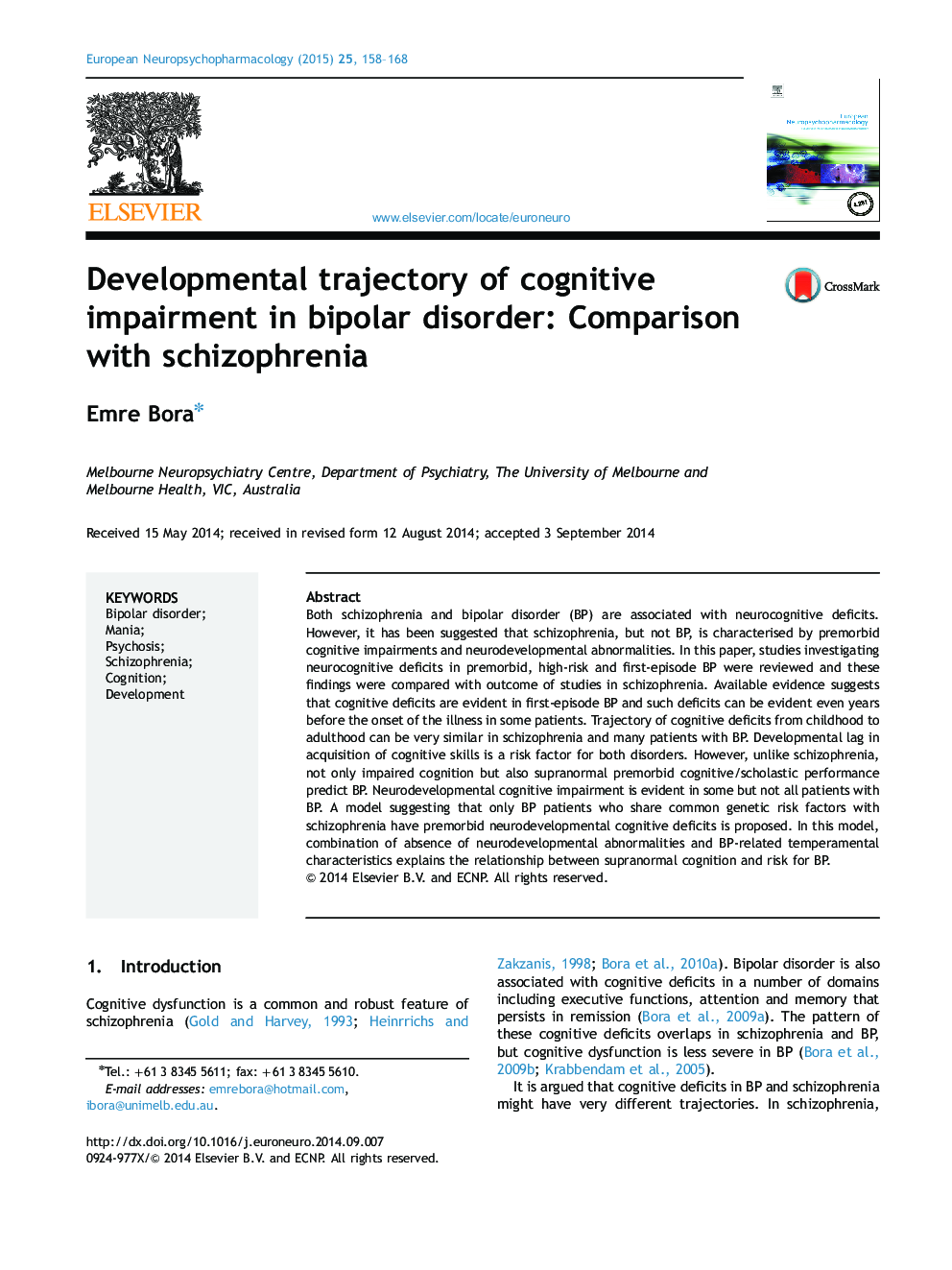| Article ID | Journal | Published Year | Pages | File Type |
|---|---|---|---|---|
| 320133 | European Neuropsychopharmacology | 2015 | 11 Pages |
Both schizophrenia and bipolar disorder (BP) are associated with neurocognitive deficits. However, it has been suggested that schizophrenia, but not BP, is characterised by premorbid cognitive impairments and neurodevelopmental abnormalities. In this paper, studies investigating neurocognitive deficits in premorbid, high-risk and first-episode BP were reviewed and these findings were compared with outcome of studies in schizophrenia. Available evidence suggests that cognitive deficits are evident in first-episode BP and such deficits can be evident even years before the onset of the illness in some patients. Trajectory of cognitive deficits from childhood to adulthood can be very similar in schizophrenia and many patients with BP. Developmental lag in acquisition of cognitive skills is a risk factor for both disorders. However, unlike schizophrenia, not only impaired cognition but also supranormal premorbid cognitive/scholastic performance predict BP. Neurodevelopmental cognitive impairment is evident in some but not all patients with BP. A model suggesting that only BP patients who share common genetic risk factors with schizophrenia have premorbid neurodevelopmental cognitive deficits is proposed. In this model, combination of absence of neurodevelopmental abnormalities and BP-related temperamental characteristics explains the relationship between supranormal cognition and risk for BP.
